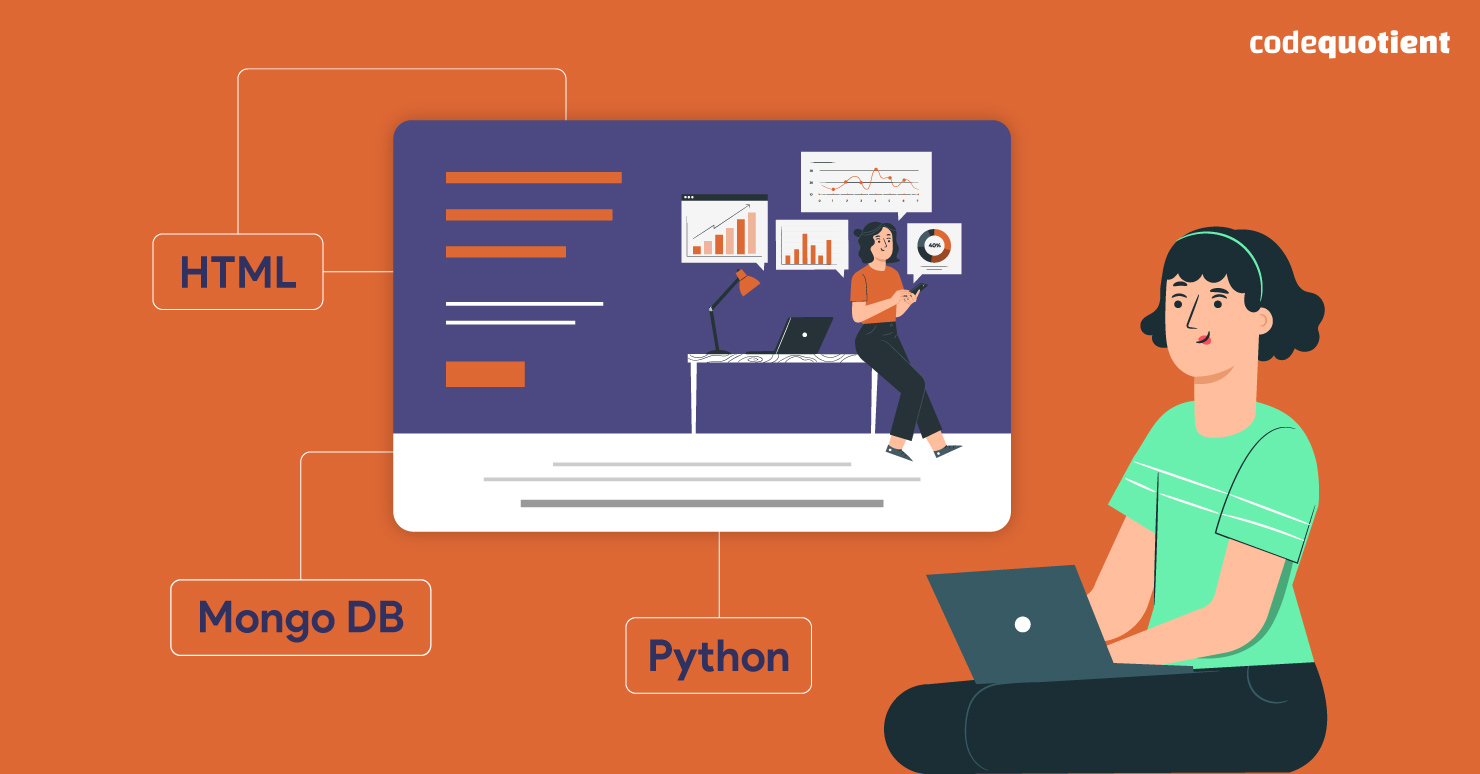Gone are the days when setting up the digital side of a business was as simple as establishing a client-server structure. Startups today need to be agile, dynamic, and ever-evolving to stay relevant in the market. To achieve this, they use a combination of technologies that are as versatile as they come.
A Tech Stack is a combination of various technologies for both the front-end ecosystem, which is accessible by users and customers, and the back-end side, which hosts the servers, databases, etc., behind the scenes, which keeps everything operational.
Choosing the right tech stack is one of the most crucial decisions for any digital startup. It directly impacts the quality, responsiveness, and resilience of the designed end product or service. Tech stacks can help startups develop some truly great products and services.

Most Popular Tech Stacks for Startups
Python:
Python is a three-decade-old, interpreted, general-purpose, high-level programming language that is the most popular in the world. It is famous because of its simplicity and efficiency, significantly reducing the need to write complex code. It also supports the usage of third-party libraries, which makes it a programming equivalent of a swiss army knife. Python’s extensibility allows programmers to code in other languages such as C, C++, etc.
Benefits of using Python in your tech stack:
Python supports using third-party libraries like Panda for scientific computing, Tkinter for easy GUI creation, etc. These extensive libraries allow developers to incorporate pre-tested, reusable software that saves development time and cost.
Python also contains data structures and algorithm design principles, which are user-friendly and easy to design, resulting in increased productivity and quicker development.
Most importantly, Python is one of the most easy-to-learn programming languages as its syntax resembles the English language, making it comfortable to read, digest, and understand.
Do you want to know what it takes to become a Full Stack Developer? Click here for a complete roadmap.
LAMP Stack:
With so many technologies being properties of mega conglomerates, going open-source can be highly rewarding and beneficial for a start-up. The LAMP tech stack is popular because of its unrestrained inclusion of open-source software like the Apache HTTP server, Linux, Perl, MySQL, PostgreSQL, and PHP.
While this tech stack makes the most sense for startups that do not wish to spend much on paid resources or prefer using open-source development tools, it comes with its challenges. The LAMP tech stack is known to have performance problems under high loads and is not as fast as its paid counterparts. It also offers lower compatibility levels with major operating systems like Windows and can be difficult for developers to learn.
To combat these challenges, a startup can choose from the following variations of the LAMP tech stack:
LAPP (Linux/Apache/PHP/PostgreSQL)
X-AMPP (Linux, Macintosh OS, Windows/Apache/MySQL/Perl, PHP)
WAMP (Windows/Apache/MySQL/PHP)
MAMP (Macintosh OS/Apache/MySQL/PHP)
MEAN Stack:
MEAN is one of the most efficient tech stacks available today. It contains open-source tools and runs on a single programming language – Javascript. This results in efficient and quick design as every application level runs on the same language. Moreover, this stack can be used to develop dynamic web apps, as well as mobile apps. The MEAN tech stack consists of the following open-source tools:
MongoDB
This open-source database essentially serves as a data repository for the application. Since Javascript is the only programming language used by the database and the application, translation is not required when data moves throughout the program. MongoDB performs well in terms of performance and storage since it is highly scalable and excels at handling enormous volumes of data simultaneously.
ExpressJS
It makes it easier for the database and the web application’s front end to interact. Its simplicity forms a vital link in an effective chain that guarantees a seamless data movement to the end user. It also helps developers avoid the classic mistake of overwriting variables.
AngularJS
AngularJS is a toolkit for creating a customized framework for developing your application. It is highly extensible and integrates well with other libraries. The client-side of the application is made using a server that is part of this JavaScript front-end framework. It also offers a variety of user-friendly templates.
NodeJS
ExpressJS was built on NodeJS as its foundation. NodeJS communicates well with AngularJS, which results in faster data movement. It makes it easy to deploy the MongoDB database to the cloud since it has a built-in web server. It is highly scalable and supports a million simultaneous connections.
Conclusion
Selecting the best tech stack for your startup essentially boils down to your developmental approach towards the product or service you’re planning to release. Consulting developers with expertise in such tech stacks can reap massive benefits and help you select the best one for your business.
Why Do Beginners Enrol in Full Stack Developer Course With Placement? Click here to find out.
Are you looking to hire certified and knowledgable young experts for your startup? Reach out to CodeQuotient as our flagship SuperCoders Program prioritizes hands-on, intensive, and real-world learning to develop skilled programmers.




